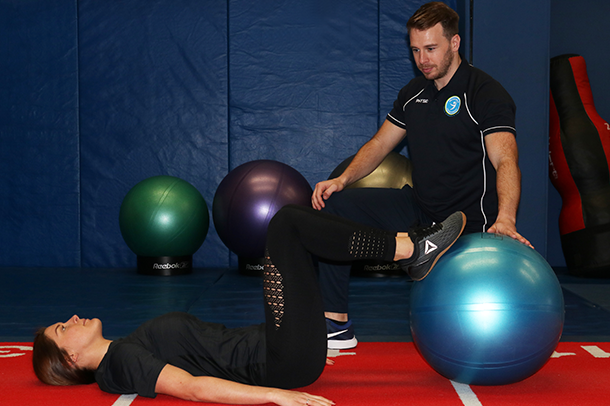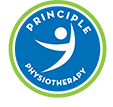
How to mentally recover from a Sports Injury
Suffering an injury can be life changing to anyone no matter the severity. Recovery typically focuses on the physical rehab, but it is also important to learn sports psychology tips to help you recover mentally and emotionally. Everyone reacts to pain and trauma differently, so your own experience is unique to you.
During the first few days after your injury it is completely normal to be angry and frustrated with yourself and the situation, you may even experience denial, sadness and depression as it often seems unfair that someone physically active and healthy can become injured. So many questions will swirl around your head, often without specific answers: Will I overcome this injury? How am I going to get back to the level I was at before my injury? Will my injury keep coming back? Why can’t I deal with the pain, I must be weak…
This is where this blog will help you!! It will teach you the top tips on looking after your own mental health, how to deal with your emotions and get back fitter and stronger than ever before! Almost all injuries have their own specific physical rehab protocol but in terms of mental healing, the process is consistent across all injuries and sports but can still be tailored to you.
The first step is being able to understand your injury. Go and see your GP or see a physio / sports therapist for them to do a full assessment and diagnose your injury or be able to refer you to have a scan if necessary. During your assessment don’t be afraid to ask the following questions about your diagnosis:
– What is my diagnosis?
– What is the recovery time?
– What is the purpose of the treatments I’m receiving?
– What should I expect during rehab?
– What can and can’t I do whilst going through rehab?
– What are the warning signs that it’s getting worse?
– What are my treatment options?
By understanding your injury and understanding your own and your therapist’s expectations you’ll feel a greater sense of control over the situation. It will allow you to set goals and targets within a specific time frame and ultimately result in less anxiety and more acceptance towards your setback. Just remember if you are uncomfortable with any medical professionals’ response then don’t be scared to go and get a second opinion especially if surgery is recommended.
Learning to accept your injury is the first step, having the attitude that this is just a set-back rather than the end of your sporting career or think that you’ll never be able to exercise again. Think of it as taking a detour off your plan. Only you can determine your outcome, so accepting your injury and maintaining a positive mental attitude will make the whole process less stressful and allows it to become a great learning curve for the future.
To recover maximally then you need to be 100% committed to the programme, make sure you attend all your doctors and physiotherapy appointments, dedicate the time to ensure you do your rehab exercises and what the medical professionals have told you to do. Therapists and doctors can only tell you what to do, it is essentially down to you to stay motivated and complete your rehabilitation.
An easy way to motivate yourself is through self-talk. A research study by a psychologist called Yannis Theodorakis investigated how effective self-talk is at improving performance during an injury rehabilitation programme. Results showed that the group of participants who repeated the words ‘strong’, ‘I can’, and ‘I can achieve great performance’ during their rehabilitation became stronger and experienced better performance during their rehabilitation than the group who didn’t use self-talk skills.
The simple way to incorporate this into your programme is to change the negative phrases in your head to negatives. For example:
“I can’t do this” -> “I can do this”
“This is going to be too hard” -> “I will try my best”
“I’m too weak to do this” ->“I am stronger than I think”
“Why am I even bothering to do this?” -> “I know this will be good for me”
Another great tool to help with your recovery is to introduce goal settings. This can be done by yourself or with your physiotherapist or coach and it involves setting short term goals to help you see the progress of your recovery. This will help keep you motivated and you’ll be able to monitor your recovery effectively.
The best format to set your goals with is by using SMART targets as this helps to break it all down.
Use these following sections to plan your goals:
S – Specific
With your physiotherapist or coach, highlight the specific area you want to improve and have a clear understanding why. It doesn’t necessarily have to be the site of your injury but could be an area that supports your injured site or a specific movement that you haven’t been able to do.
M – Measurable
Define clear and measurable outcomes. Set progress checks to prove to yourself that you are improving.
A – Achievable
Make your goals achievable to avoid becoming demotivated. You should feel slightly challenged but still have the ability to reach them without setting yourself impossible tasks.
R – Relevant
Make sure your goal is worthwhile and meets your needs of your long term recovery. Make sure the results are clear too to ensure that you know when you have reached your desired results.
T – Time
Set yourself a timeframe in which your goal should be achieved in. it will establish a sense of urgency and prompt you to have better time management.
By using these tools to help your mental state throughout your rehabilitation it will correspond with effective physical rehabilitation and you’ll be back to doing what you love in no time!
Written by Jemma Pemberton (Sports Therapist)




